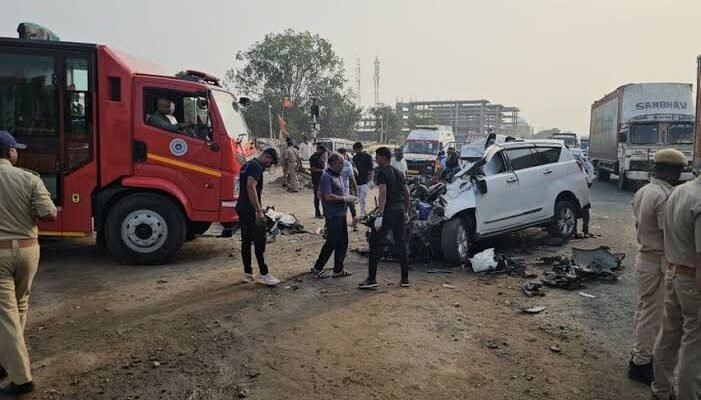Rivers State, Nigeria — A somber cloud descended over Rivers State on Thursday as news broke of a tragic road accident that claimed the lives of eight students from the Rivers State University. The students were reportedly travelling to their hometowns to participate in the upcoming local elections when their vehicle was involved in a fatal crash along the East-West Road, one of Nigeria’s most perilous highways.
The Journey That Turned Fatal
According to preliminary reports from the Federal Road Safety Corps (FRSC), the students had departed Port Harcourt in a commercial bus early Thursday morning. They were headed toward various destinations in the state, eager to fulfill their civic duties in the local government elections scheduled for the weekend.
Tragedy struck near Ahoada, a town notorious for fatal accidents due to its poorly maintained road, potholes, and heavy commercial traffic. Eyewitnesses say the 18-seater bus the students were traveling in collided head-on with an oncoming trailer that appeared to have lost control. The impact of the collision was catastrophic.
Eight students, all undergraduates of Rivers State University, were killed on the spot. Several others sustained severe injuries and were rushed to the University of Port Harcourt Teaching Hospital (UPTH) and nearby clinics for emergency medical attention.
Who Were the Victims?
The identities of the deceased students have not yet been officially released as authorities work to notify their next of kin. However, sources within the university community confirmed that they were all active members of the Student Union and various departmental associations. Some were final-year students who had only recently completed their thesis submissions and were excited about participating in an election many saw as pivotal for their local communities.
Friends and classmates described them as “bright, energetic, and passionate about change.” For many, this tragic loss feels personal, touching the core of the student community.
University and Government Reactions
In a statement released by the Rivers State University administration, Vice-Chancellor Professor Nlerum Okogbule expressed profound grief over the loss of the students.
“This is a dark day for our university. We have lost promising young minds who were not only committed to their studies but also to the democratic process. Our thoughts and prayers are with their families,” the statement read.
The Rivers State Governor, Sir Siminalayi Fubara, has also weighed in on the tragedy. Through his official spokesperson, the Governor expressed condolences to the bereaved families and directed that medical treatment for the injured be fully covered by the state government. He further promised a full investigation into the cause of the accident and pledged to renew efforts at making the East-West Road safer.
A Deeper Problem: Unsafe Roads and the Youth’s Burden
The accident has reignited concerns about the safety of Nigeria’s road infrastructure, particularly the East-West Road, which connects several states in the Niger Delta region. For years, the highway has been in deplorable condition despite multiple government promises and budget allocations for its rehabilitation.
“This is not just an accident; it is the consequence of systemic neglect,” said Ngozi Opara, a transportation safety analyst. “Year after year, young Nigerians pay the price for infrastructural decay that should have been fixed a long time ago.”
Students often bear the brunt of these challenges, especially during national and local elections when they are compelled to travel long distances to their registered polling units, owing to the lack of a functional system that allows for voting by residence.
National Mourning and Reflection
The tragedy has sparked national mourning, with student unions across Nigeria declaring a day of solidarity and candlelight vigils to honor the memory of the deceased. The National Association of Nigerian Students (NANS) issued a strong statement calling on the federal government to declare a state of emergency on road safety and to prioritize youth security, particularly during election periods.
“This is not the time for mere condolences,” said NANS President Lucky Emonefe. “We demand accountability, we demand safer roads, and we demand a system that does not endanger the lives of young Nigerians simply because they wish to vote.”
Conclusion
As the families of the eight students grapple with indescribable grief, their deaths serve as a stark reminder of the intersection between civic responsibility and infrastructural failure in Nigeria. What should have been a proud act of democratic participation has instead become a heartbreaking national tragedy.
In their memory, stakeholders are calling not just for condolences, but for lasting reforms that will ensure that no young Nigerian ever has to pay the ultimate price for trying to make their voice heard.
By: [Your Name]
Date: May 16, 2025
Location: Port Harcourt, Rivers State, Nigeria



